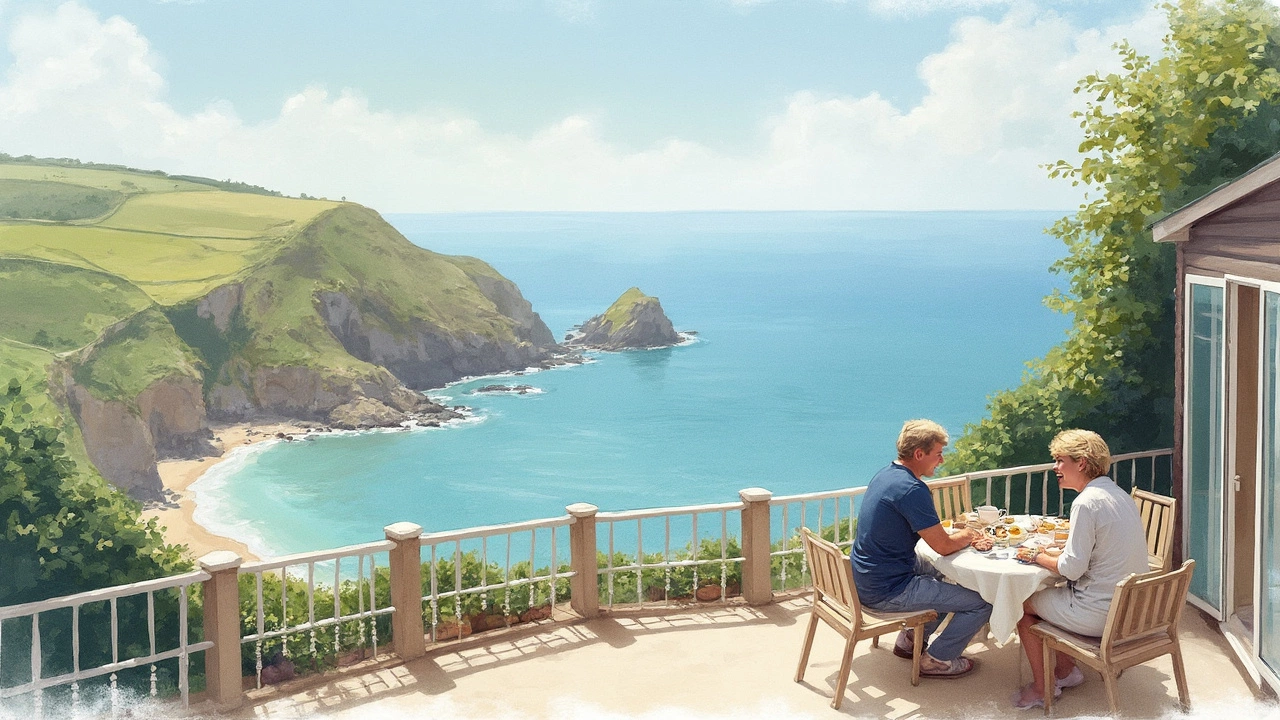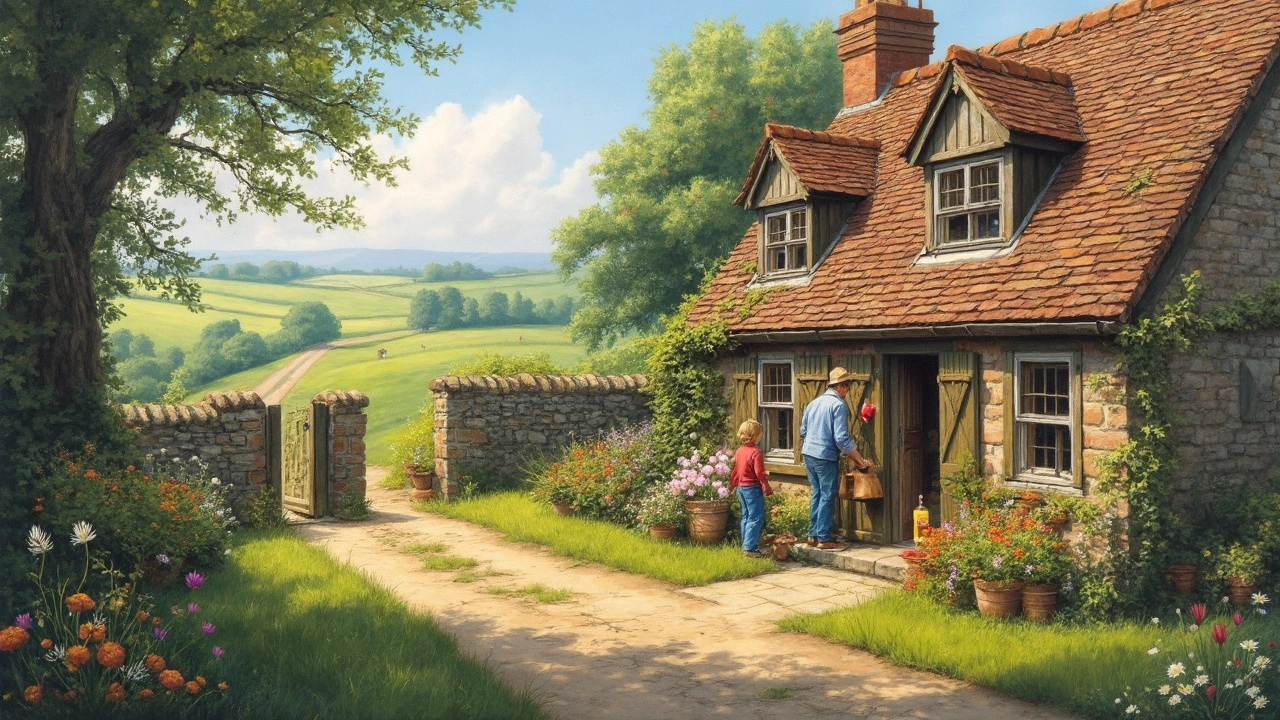Self-Catering Accommodation: The Three Main Types Explained
14 May, 2025Most people don’t realize just how much freedom a self-catering place gives you on holiday. When you pick one of these spots, you get your own kitchen, your own schedule, and space to really relax—no awkward breakfast times or sneaking snacks after hours. For families, groups, or anyone who wants to ditch the crowds, this is a game changer.
But not all self-catering spots are the same. Some are just right for a lazy weekend with a book in the countryside, while others are perfect if you want to walk out the door and hit the city’s best pizza place. Knowing the differences can save you money, stress, and even arguments about who gets which room.
Let’s break down the three main types, spotlight what they offer, and throw in some tips along the way so you don’t get caught off guard by the small stuff—like hidden cleaning fees or that one cottage with no WiFi (yep, they still exist).
- What is Self-Catering Accommodation?
- Holiday Cottages: Homey Comforts
- Apartments and Flats: City Convenience
- Lodges and Cabins: Nature on Your Doorstep
- Which Type Should You Choose?
What is Self-Catering Accommodation?
If you’re new to holiday planning, you might wonder what exactly counts as self-catering accommodation. The short answer: it’s a place you rent where you cook your own food and set your own pace—nobody’s making breakfast for you, but nobody’s rushing you out the door either. The self-catering cottages you see online are just one part of the picture. Apartments, lodges, even some cabins all fall into this group.
Think of it as the halfway point between booking a hotel (where meals and housekeeping are included) and camping (where you’re totally on your own). You get your own kitchen, at least one private bathroom, and usually a living area. Some spots throw in perks like a garden, barbecue area, or a washing machine, which is super handy if you’re traveling with kids or staying for more than a weekend.
What really pulls people in is value for money and the chance to have a place that feels like home, even if it’s just for a week. People who travel in groups or have dietary needs love self-catering for just this reason. No fighting over the last hotel breakfast croissant—everyone can eat what and when they like.
Here’s a quick look at how self-catering stacks up against hotels and B&Bs:
| Feature | Self-Catering | Hotel | B&B |
|---|---|---|---|
| Private Kitchen | Yes | Rarely | No |
| Freedom of Meal Times | Yes | No | No |
| Space (Living Area) | Usually | No | No |
| Daily Housekeeping | No | Yes | Sometimes |
| Good for Groups | Yes | Mixed | Mixed |
Here’s a small tip: always check what "self-catering" includes wherever you’re booking. Most places will have a kitchen, but not all come with things you might expect—like sharp knives, a coffee maker, or washing up liquid. A quick message to your host can save you a last-minute trip to the nearest shop.
Holiday Cottages: Homey Comforts
When people talk about escaping to the countryside, they usually mean booking a holiday cottage. These places are the heart of the self-catering cottages scene. Picture a private house—sometimes a farmhouse, sometimes a barn, and sometimes a classic stone cottage—where you get your own rooms, kitchen, and often a bit of garden space. Families love it because you’ve got space for the kids to run around, and couples like the privacy and cozy vibe.
Holiday cottages come in all shapes and sizes. You’ll find tiny spots for two in Cornwall or big farmhouses for ten in the Lake District. Some are dog-friendly, some have hot tubs, and others get booked by people who just want peace and quiet with strong WiFi. Over 35% of UK holidaymakers choose a cottage for rural trips, according to a 2023 booking.com survey—so you’re not alone if this is your go-to.
One big thing: a good cottage will usually be fully equipped. You’ll get everything from basic pots and pans to a proper fridge, plus oftentimes a washing machine and a welcome pack (maybe homemade cake, maybe just a pint of milk and some teabags). If you care about views, check the listing’s photos carefully. Sometimes what’s called "country views" turns out to be a field with a garden shed.
- Flexible meal times—cook whenever it suits you
- Good for groups and families (extra rooms and social spaces)
- No front desk or shared hallways—total privacy
- Parking often on site, which saves hassle
A little tip: double-check if pets are allowed and watch for extra cleaning fees (some owners add these per stay, especially if you bring your dog). If internet’s key for you, always confirm it’s included—rural spots are notorious for spotty WiFi.
| Feature | Typical Holiday Cottage |
|---|---|
| Kitchen Facilities | Fully equipped: fridge, oven, pans |
| Private Garden | Common, but varies |
| Number of Bedrooms | 1-5+ |
| Parking | Usually free and on-site |
| WiFi | Often, but check for rural places |
| Pet Friendly | Most have options, check first |
With cottages, you get the comfort of home while still being a world away from daily routine. Perfect for anyone who wants their own pace—and their own cup of tea whenever they feel like it.

Apartments and Flats: City Convenience
If you want to stay right in the middle of city action, flats and apartments are a smart pick for self-catering accommodation. These places put you within easy reach of public transport, cafés, museums, and nightlife. For short city breaks or business trips, it’s hard to beat the flexibility. Most cities in the UK and Europe, like London, Edinburgh, or Paris, have loads of rented apartments created just for travellers. You’ll find everything from tiny studios to spacious penthouses.
While the layouts vary, every self-catering apartment adds real-life comforts, like a kitchen with all the basics, free WiFi, a washing machine, and usually a living room. Some even toss in small extras—maybe a balcony or access to a fitness centre. Want to pop downstairs for takeaway or stock up on groceries at a corner shop? That’s easy when you’re in the heart of the city.
If you’re traveling on a budget or splitting the cost with friends, apartments often work out way cheaper per person than a hotel. That’s especially true if you stay more than a couple of nights—many places drop prices for week-long bookings. Airbnb, Booking.com, and Vrbo are packed with listings, and you can check reviews for honest feedback (watch out for the ones that charge extra for things like towels or late check-in).
Here are some tips to get the most out of your city apartment:
- Check if the building has an elevator—lots of older city apartments don’t, and those staircases can be brutal with luggage.
- Look at the location before booking. Sometimes, the “city centre” description is a stretch, especially on big booking sites. Cross-check with Google Maps.
- Ask about essentials in the kitchen. Some places provide just a kettle and a pan, while others stock up with oil, coffee, and spices—heck, some even leave you a welcome pack.
- Find out about noise levels. Flats right above bars or main streets are lively but can mean rough nights for light sleepers.
When you hear “self-catering cottages,” you probably think countryside, but don’t overlook apartments—they bring city convenience to the table and give you a real local vibe you’ll never get at a generic hotel.
Lodges and Cabins: Nature on Your Doorstep
If you’re looking for a getaway where trees, lakes, and maybe even a chance at spotting deer are right outside your door, lodges and cabins deliver the goods. These self-catering gems feel way different from an apartment in the middle of town—they’re perfect if you want a break from traffic and noisy neighbors.
Lodges and cabins usually pop up in rural spots, near forests, lakes, or the coast. You’ll find them throughout the UK’s national parks—places like the Lake District, Snowdonia, or the Scottish Highlands are packed with options. Most are built from wood or stone, which gives you that classic "cabin in the woods" vibe, sometimes with a log fire to lean into the whole experience.
If you want peace and privacy, this is where these spots shine. Families love them for space to run around or barbecue, and they tend to be dog-friendly too. Some cabins are ultra-basic, focused on just the essentials, while modern lodges often come fully kitted out with WiFi, hot tubs, and even their own saunas.
Just check out how they stack up for features:
| Feature | Basic Cabin | Modern Lodge |
|---|---|---|
| WiFi | No | Yes |
| Kitchen | Small | Full-size |
| Hot Tub/Sauna | No | Often |
| Location | Remote | Varies |
Now, not everything’s picture perfect. Planning is key. In some spots, phone signal can be hit-and-miss. Stores can be a long drive, so arrive with your main essentials. A lot of places ask you to tidy up before you leave and may charge extra for firewood or electricity.
- If you want to go hiking or fishing, check if there’s direct access from your cabin—some properties sit right by trails or rivers, saving you a car journey every morning.
- Look out for wildlife: it’s not unusual to wake up with squirrels on the deck or, if you’re lucky, wild ponies in parts of Wales.
- Packing tip: even in the summer, rural spots get chilly at night—don’t trust the weather app, just bring a hoodie.
If you’re craving downtime, lodges and cabins give you privacy and tons of fresh air, which can be a real game-changer compared to city rentals or even self-catering cottages in busier places.

Which Type Should You Choose?
So, which self-catering spot is actually your best fit? It comes down to how you want to spend your time, who you're traveling with, and how much you feel like spending. Here's how the three main types shake out against real-life needs and plans.
- Holiday Cottages: Great if you’re after quiet, privacy, and that "home away from home" vibe. Families, groups, and even pet owners find these super handy. Some cottages are decades or even centuries old (think thick stone walls and big fireplaces), but plenty have modern kitchens and fast WiFi.
- Apartments and Flats: Best for city breaks or if you want shops and restaurants close by. Usually smaller, but you sacrifice space for walkability and convenience. Business travelers and couples love these for just that reason.
- Lodges and Cabins: Pick these if fresh air and nature are high on your wish list. Ski trips, hiking weekends, or digital detoxes all suit a cozy cabin or lodge. Watch out for places that have limited tech or phone coverage—it’s either a bonus or a headache, depending on your point of view.
Can’t decide? Consider these practical questions:
- How much space do you need?
- Do you care more about being central or about peace and quiet?
- Are you bringing kids or pets?
- What does your budget look like?
Here’s a handy comparison:
| Type | Best For | Average Weekly Cost (UK, 2024) | Common Features |
|---|---|---|---|
| Holiday Cottage | Families, groups, long stays | £550–£1,200 | Full kitchen, garden, pet-friendly |
| Apartment/Flat | Couples, solo, business travel | £350–£850 | Central location, modern amenities |
| Lodge/Cabin | Nature escapes, small groups | £400–£900 | Fireplace, rural setting, scenic views |
Remember, a self-catering cottage usually beats hotels when you want to cook for yourself, keep your own schedule, and stretch out. Booking early, especially for summer months, is smart—some cottages are fully booked up to a year in advance. And always double-check the small print: Are towels included? Is there an extra cleaning charge? These little details often trip people up, but get them right and your trip will run way smoother.

 by
by